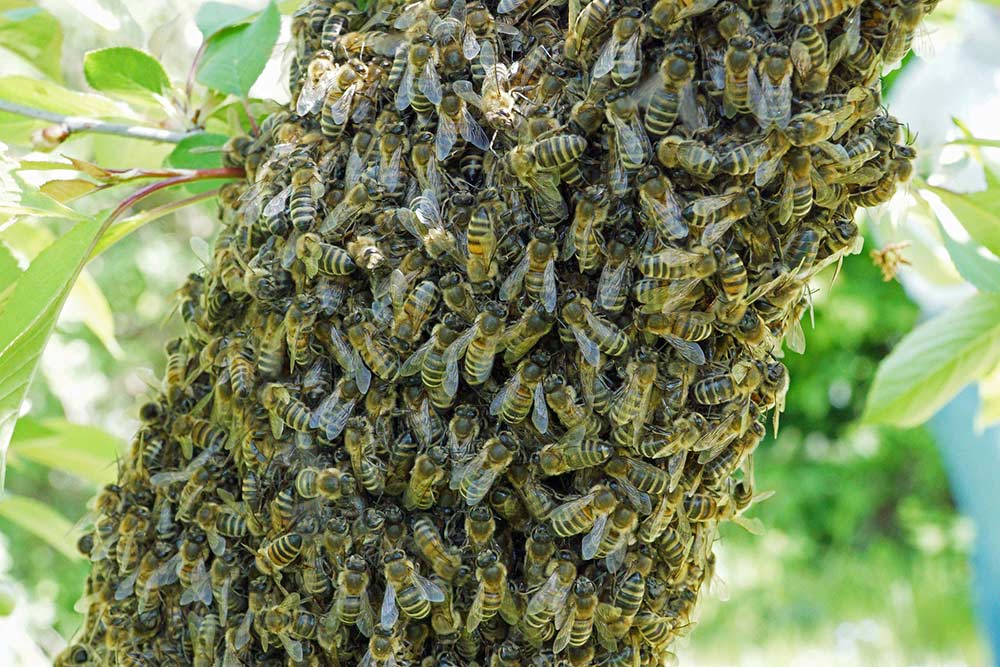
Why do Bees Swarm?
So, you’ve just seen a huge bee swarm. But a logical question you may ask is what is swarming and why do bees do it.
In truth, swarming is a perfectly natural behavior for a colony of honey bees. Swarming happens when a large number of honey bees leave an established colony in order to start a new colony of their own. Swarming is nature’s way of alleviating crowding (or other issues) within an established/older colony that ensures honey bee propagation.
There are generally 2 reasons why Honey bees will swarm.
Reason #1: The beehive has become overcrowded. When worker bees determine that the hive is overcrowded, they will create new cells specifically for the queen to lay eggs in as this will enable a new queen to emerge to take over the old hive. The worker bees will deny the queen of food so that she can reduce her size to better enable her to fly to the new nest.
Reason #2: A lack of food or water, or some other change that makes residence in the current hive untenable. This could include any disturbance by humans or animals; issues with the queen; or even a change in weather at the location of the current beehive.
Generally speaking, swarming occurs in the Spring and Bees will not swarm during rainy or inclement weather.
When swarming, the queen bee will land on some type of structure for a resting place while worker bees will completely surround her, to reduce her temperature and protect her. At the same time this is happening, a small number of scout bees will search for a new place to build a hive. Once the scouts have found a suitable location for a new nest, the bees will take their queen to the new location.
Keep in mind that not all bees swarm alike. For example, the Africanized honey bee is more likely to swarm than their Western counterparts due to their more aggressive nature.
After swarming, where do honey bees set up their new nest?
Honey bees will usually build their hives in tree cavities, shrubs, light poles, or abandoned buildings. That said, they can and have also set up their hives within the structure/walls of the homes of humans.
Are Swarms Dangerous?
Honey bee swarms usually do not present a danger to humans. This is in part due to the fact that swarming honey bees will eat before swarming, which reduces their ability to sting. Additionally, honey bees tend to be less defensive when they are away from their nest and thus less likely to sting unless they are provoked.
If you’d like to know more about bee swarms or suspect you have a bee problem, contact our a bee removal professionals at The Beehive, Bee and Wasp Removal today!